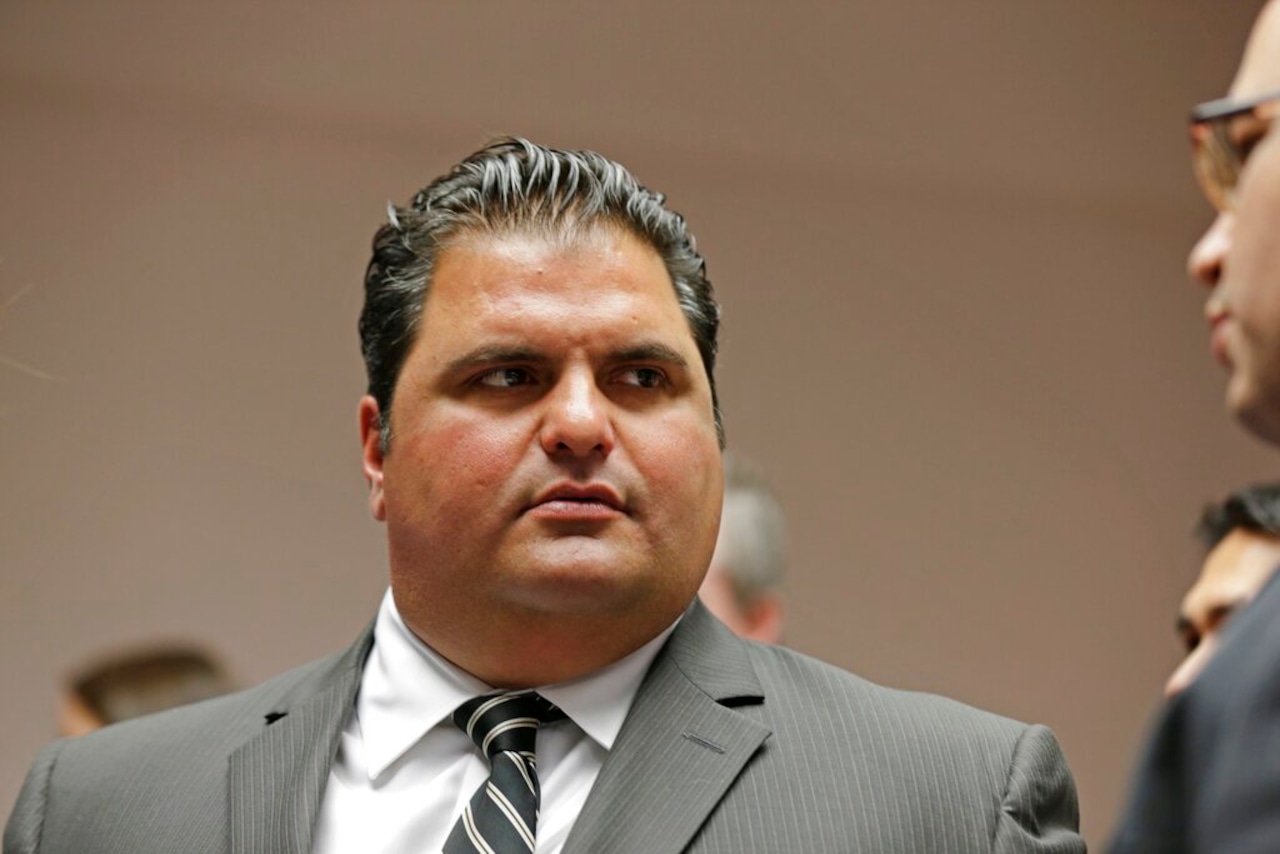
Everett Mayor Carlo DeMaria received $180,000 in longevity bonuses he was not entitled to, then hid the payments from the City Council and the public, Inspector General Jeffrey Shapiro wrote in a letter issued Thursday.
In July 2016, DeMaria asked the City Council to consider adopting an ordinance awarding a mayoral longevity payment after learning other city employees were earning more than he was. At a meeting that September, the council considered a version of the ordinance with slightly different language than the original proposal.
The ordinance called for a $10,000 payment to be made to DeMaria for each completed full term, rather than after each term. It also called for a one-time retroactive payment of $10,000 for each term DeMaria had previously completed.
Two days after the September meeting, the city paid DeMaria a $30,000 retroactive payment for the three terms he has previously served, which Shapiro deemed improper because the ordinance had not been formally adopted at that point. The ordinance was adopted on Oct. 11, 2016.
After the ordinance was adopted, DeMaria was paid $10,000 for each term he served cumulatively and annually — adding up to a $40,000 bonus each year from 2018 through 2021. Between September 2016 and April 2021, Everett paid $220,000 in longevity payments to DeMaria.
But the Inspector General found DeMaria was overpaid by $180,000. He was entitled to a $30,000 retroactive payment when the ordinance was passed and a single $10,000 payment for completing his fourth term, Shapiro’s office said in a statement.
“I am not aware of any elected official in the Commonwealth who receives a $40,000 annual bonus,” Shapiro said in the statement.
In interviews with the Inspector General’s office and public statements, eight of the 11 members of the 2016 council said they believed the intent of the ordinance was to give DeMaria a $10,000 payment after each term. In March 2022, when councilors learned DeMaria was earning $40,000 per year, the body amended the ordinance to decrease the longevity payments to $1,700 annually.
The longevity payment appeared in the mayor’s office budget just once, Shapiro’s office found. After the initial $30,000 payment, the annual bonus was moved to a human resources line item used to pay employees for unused sick and vacation time when they left the city. Doing so made the payment “far less transparent and far less likely that the city council would detect it,” the statement reads.
Senior members of DeMaria’s administration allowed him to “circumvent the city’s internal controls” by failing to properly document the longevity payments, Shapiro’s office said.
Shapiro is calling on the City Council to “recover these funds from the mayor and return them to the city’s treasury.”
“Through their misapplication of the longevity ordinance and their efforts to conceal all but the first payment, the mayor and members of his administration, including his CFO and budget director, failed to uphold their fiduciary duties and their obligation to the people of Everett,” he said.
Shapiro also called for the city to eliminate the longevity payments altogether, to provide detailed information about the payments to the state Ethics Commission, require city councilors and members of the mayor’s administration to undergo specialized training on their fiduciary obligations and to strengthen controls in its finance department.
“Longevity payments are a tool to reward and retain highly sought after, skilled municipal employees,” Shapiro said. “Standing for election is a proactive affirmative decision by an individual and thus does not require a retention bonus. A mayor’s total compensation should be determined by a city council in full view of a city’s voters.”






